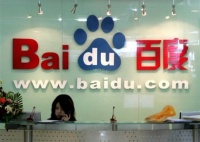Since CDT last updated Baidu’s bid ranking crisis, the Chinese search engine giant’s fortune has changed dramatically. Its share price on NASDAQ dropped 25% in the day immediately after CCTV broadcasted its report doubting Baidu’s credibility. Its CEO, Robin Li, has also issued an apology to the public and announced a plan to reform its bid ranking methodology. However, as almost all of the company’s revenue come from bid ranking, it is still unclear to see How Baidu is going to change its core product. CDT here presents some views and observation from three different angles on how Baidu gets into its today’s situation.
First, from an American observer, David Wolf’s point of view,
What this all comes down to is a failure to communicate.
Whether comfortable admitting it or not, Baidu has always been seen as “Google with Chinese Characteristics.” What Baidu needs to recognize is that China’s characteristics – and specifically her Internet users – are evolving.
More of the nation’s online populace is turning to online search as a pathway to seek truth from facts, not find stealth ads from snake-oil salesmen hidden among – or above – genuinely helpful information. Wall Street may be pushing for monetization, but the demand from Chinese consumers is for credibility, trust, and results they can believe in. Sincere testaments of devotion to such ideals and a few sackings are a good start, but it will not be enough: Baidu has to do more to balance the disparate demands of investors, advertisers, and users.
[…] Baidu has had a dominant position in China, but to this observer it is starting to look like all Baidu has is its dominant position. It does not appear credible, it does not appear focused, and it does not look like a particularly good partner for other online companies and a partner of declining value for advertisers.
Then, translated partially from 南方人物周刊 (Southern People’s Weekly),
The majority of Baidu bid ranking’s customers are medium and small sized websites. The logic of “Money equals ranking” can be understood from two perspectives. Some people think it conforms to “the country’s situation,” especially catering to China’s medium and small sized enterprises’ mindsets and their need to develop; some even claims “We don’t need Google’s ‘American-style democracy and justice’; its traffic has all gone to big websites.” However, there are still people saying that if spending money can solve problems, the consequence would be that effort on technological innovation becomes worthless.
Feng Jiang worked for the bid ranking’s tech service before quitting the job. He thinks that, according to Baidu’s value system and its culture, “blockout” and “fraud” should not have been the company’s intention. “In many cases, those things were done by sales department under pressure of performance.”
“The development of Chinese search engines needs to conform to the country’s situation,” told by Feng Jiang to the reporter. “The most fundamental situation is on relationship with the government and also matters about media and public opinion.” As he shows in an example, Baidu has records of tens of billions of Chinese webpages but only put roughly half of them online. “Actually from our technicians’ perspective, it is only a matter of one more restriction, which we called ‘黄反 (pornographic and reactionary)’ (information). When Baidu Japan was first released, there was no pornography filter applied in photo searches. As a result, many domestic IP addresses were attracted visiting there. We had no choice but to disallow entries from domestic IPs.
For the native-born Baidu, such kind of “voluntary conformity” to certain power does not fit into subjects of simple moral judgment. However, when the “advantage of manipulation” shifts from politics into economy, it then suddenly changes and really becomes a tool for the search engine to make a profit. The most obvious example is the uproar of the “3 million to block out negative news” event in this year’s Sanlu scandal. The rumor has not been proved (or disproved either), but what everybody knows is that information would only become necessary to be bought off when it can be manipulated. Some media has reported that among many sales plans Baidu offered to its customers , crisis PR was ranked no.1 on the option list: if there is some negative news about a customer, Baidu can artificially manipulate from its tech back-end to block out relevant links (in its search result).
The last but not the least, 与G共舞 (“Dancing with Google,” a Chinese blog probably set up by a Google fans) also makes some observation worth to notice. Here translates the ending part of it.
8. Baidu mixes bid-ranking advertisement with search results, which is just like traditional media’s soft advertisement making people unable to distinguish (advertisement from news) and getting them disgusted. Maybe you like being immersed in and getting a profit from it. But eventually in one day, you will also become one of its victims. Whatever artifice you can use can be also used by others. “The Big Customer” is the only exception. (The link goes to an article in Chinese about the state propaganda department.)
9. “The Big Customer” asks for deletion and adjustment of search results; it is the “Big Customer’s” problem. But Baidu, for its own benefit, accepts money to block out negative information; it is Baidu’s own problem of its value system. Please do not pass (the responsibility) to others.
10. “G速客 (G Sonics, a Chinese blog)” says that Baidu has been constantly doing this and being criticized. However, it is still able to occupy and increase its big dominance in the market share to establish its legitimacy. I want to cry but have no tears; doesn’t it just prove the sadness of our society?
11. Having netizens with such kind of value system and this kind of internet condition, no wonder why we have this kind of Baidu today!
For more on Baidu, Google, and China’s internet search engine market, please see the CDT tag ““search engines.”








